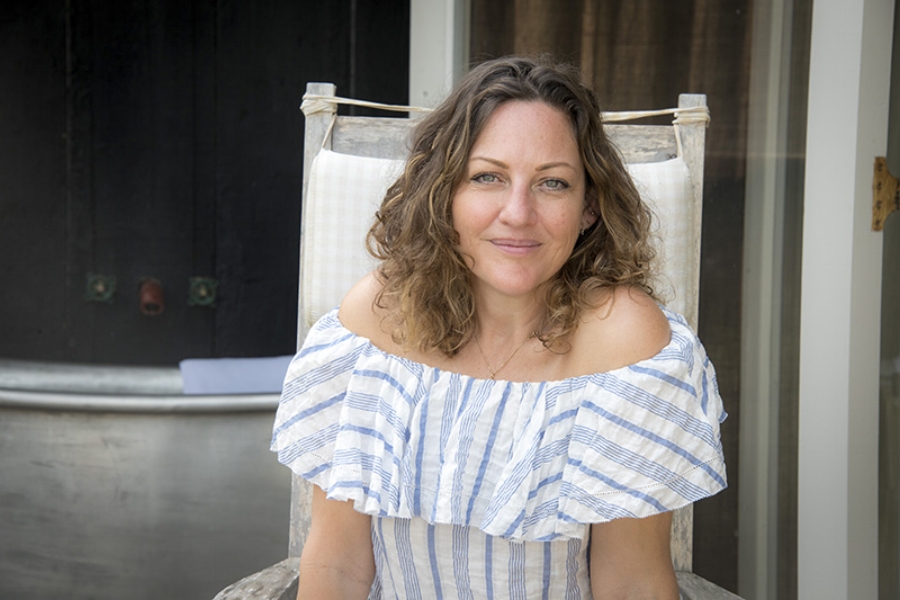Emma Cannon
Emma Cannon is a fertility and women’s health expert, registered acupuncturist, founder of the Emma Cannon Clinic, and a mentor and speaker. With over 20 years in clinical practice, from her fertility rooms she has helped countless patients achieve their dream of having a family. She is author of five books including the best-selling The Baby Making Bible and FERTILE, which was published by Vermillion in March 2017. Emma has incorporated Ayurveda into her life for over 25 years.
"My life's work has been dedicated to the promotion of the principles of Eastern medicine. I believe it to be the most gentle and sophisticated form of medicine with the longest recorded history. The foundations and principles, although ancient, are as relevant today as they ever were - maybe more so . In our busy modern lives introducing some Eastern wisdom can transform your health and life"
"Ayurveda opened my eyes to a new way of understanding the world and it made sense to me like nothing before"
What does Ayurveda mean to you?
A system of medicine and healing that places the individual and not the disease at the centre of its diagnoses. A way of maintaining equilibrium and balance in the body to treat disease, maintain health and correct imbalances
What drew you to Ayurveda?
The idea we're all different and need different medicine and the idea our emotional self and physical self are not separate
What do you think it has helped with?
So much it is hard to know where to start... here goes!
My work is mainly using acupuncture (part of Chinese medicine) and differential diagnosis to correct women's cycles and optimise fertility. I have also had success helping women and men with stress disorders impacting on sleep, vitality and health, I have written four books on the virtues of eastern medicine and I receive letters or emails every week about how making adjustments to diet and lifestyle has improve health in people who have followed the advice.
Is it part of everyday life or merely part of your medicine cabinet/fall back routine part of everyday life?
If the weather is cold I eat more warm food. If I get damp I eat food to off set dampness. Balancing energy, I how I live my life I don't believe I could separate it now if I tried. If I feel tired and I have a busy week - I rest my body and give it extra support through food. If I feel I am getting ill I eat the food I know my body needs to heal or I fast and give my system a break. I know my digestive system responds better to cooked food and when I chew . When my children are getting sick I apply these principles too.
Did you integrate it gradually or overnight and for any particular reason?
It was a very natural process - the more I studied the more natural it seemed to me - integration was a natural state for me - it always made send
Do your children/family eat like this? And if they do, do they know it’s Ayurveda or just home-cooking?
It is how they have always been fed - I brought my children up with eastern principles - adapting recognisable dishes by using energetic principles
Favourite Ayurvedic recipe or go to ingredient?
Turmeric, ghee - I also love congee with chicken and ginger or crab and spring onions and sesame seeds (these are more Chinese but I am sure there are equivalents )
Day to day routines?
Skin brushing, oil pulling, stretching , eating slowly, I rest at lunchtime for 1/2 hour most days now.
We call this little Yin, night sleep is Big Yin
What do you wish was more accessible in our society to make an Ayurvedic lifestyle more simple?
Time
How does Ayurveda support your lifestyle?
By living more in tune with the laws of nature
By promoting balance and harmony
By recognising that we are all different and require different approaches to health
Do people around you/in your circle of friends know about it?
Yes because it is my every reference
Whats the one thing you would encourage everyone to try/do you think would benefit the majority of people’s health for the better?
Eat according to your constitution
“Emma Cannon treats clients using a mind-body approach, making the connection between the physical body and the emotions. She does a 360 degree diagnosis looking at the body, its environment and its psychology.”

